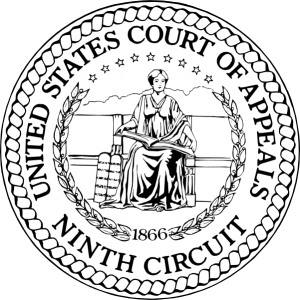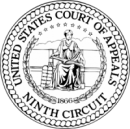 The U.S. Court of Appeals for the Ninth Circuit recently reversed the dismissal of a class action that was removed to federal court under the federal Class Action Fairness Act (CAFA). In so ruling, the Court held that the case fit the narrow “local controversy exception” to CAFA’s grant of federal court jurisdiction.
The U.S. Court of Appeals for the Ninth Circuit recently reversed the dismissal of a class action that was removed to federal court under the federal Class Action Fairness Act (CAFA). In so ruling, the Court held that the case fit the narrow “local controversy exception” to CAFA’s grant of federal court jurisdiction.
A copy of the opinion is available at: Link to Opinion.
The trial court found it had jurisdiction over a class removed from state court under CAFA. Then, the trial court dismissed the suit for failure to state a claim. However, the Appellate Court focused its analysis on the jurisdictional question alone and reversed on that basis alone.
The putative class consisted of Nevada borrowers who took out loans against Nevada real property. Later, those borrowers defaulted, and the six defendants initiated non-judicial foreclosures. The borrowers alleged the defendants engaged in illegal debt collection activity in connection with those foreclosures.
More specifically, the borrowers alleged the defendants engaged in “claim collection” without being licensed as supposedly required by Nevada Revised Statutes (NRS) Section 649. The borrowers argued that Nevada law requires foreclosure trustees to be licensed, and that the defendants’ failure to register as “collection agencies” (as defined in NRS Section 649.020) constituted a deceptive trade practice. The borrowers also alleged that the defendants engaged in unjust enrichment, trespass, quiet title, and elder abuse.
Of the six defendants, only one company was domiciled in Nevada. The borrowers alleged that company engaged in 15 to 20 percent of the total debt collection activities in the suit. The borrowers estimated the damages recoverable from that defendant were between $5,000,000 and $8,000,000. The borrowers also sought equitable relief against that company.
Before turning to the Appellate Court’s analysis, a discussion is necessary.
To meet CAFA’s relevant jurisdictional requirements, a case must meet a three-part test. First, the class must consist of 100 or more members. Second, the aggregate amount in controversy must exceed $5,000,000. Third, any class member must be a citizen of a state different from any defendant. This case met those requirements.
However, as you may recall, there is also a “local controversy exception” in CAFA.
Under CAFA’s “local controversy” exception, a federal court must decline to exercise CAFA jurisdiction if: (1) more than two-thirds of the members of the class are citizens of the state where the action was filed; (2) a defendant against whom “significant relief” is sought and whose alleged conduct “forms a significant basis for the claims asserted” is a citizen of the state where the action was originally filed; and (3) the “principal injuries” complained of occurred in the state where the action was filed.
With this framework in mind, the Ninth Circuit began its analysis by deciding which allegations it could consider, because the trial court had rejected the plaintiffs’ request to amend their complaint prior to dismissing the suit for failure to state a claim.
First, the Court decided, without significant discussion, that the trial court abused its discretion by not allowing the plaintiffs leave to amend. Then, the Court held that it could consider facts in the proposed second amended complaint to determine the jurisdictional analysis.
The Ninth Circuit recognized that viewing the proposed second amended complaint was against the general principle that jurisdiction is determined at the time of removal. The Court’s rationale for doing so was that, unlike in a standard case, a post-removal amendment could actually supplement jurisdictional facts relevant to the CAFA analysis that the plaintiffs would otherwise not include in their initial complaint. As the complaint’s allegations control the “significant relief” analysis in the “local controversy exception” above, the Ninth Circuit found that the class should have had a chance to elaborate on those allegations.
Court Holds CAFA’s ‘Local Controversy’ Exception Applied
Next, the Court began its analysis of the “local controversy exception” by analysis of the first requirement — i.e., that two-thirds of the putative class were from the state the action was filed — finding this requirement was met.
Then, it turned to whether the Nevada company’s conduct formed a “significant basis” of the class claims, and whether the class sought “significant relief” against the Nevada company.
Ultimately, the Ninth Circuit adopted a comparative approach to determine if the Nevada company’s conduct was a “significant basis” for the class claims. The Court focused on how much of the conduct at issue was attributable to the Nevada company, as opposed to the other defendants. In doing so, the Court found the Nevada company’s conduct formed the required “significant basis.” The Court emphasized that the Nevada company was just one of six defendants, and had engaged in 15 to 20 percent of the alleged illegal conduct.
In deciding whether the class demanded “significant relief,” the Court did not focus on the comparative relief sought against the Nevada company versus the other defendants. Rather, the Ninth Circuit simplified its approach and looked only to how much the plaintiffs alleged they should recover from the Nevada company. The Court found that the relief sought — between $5,000,000 and $8,000,000 and equitable relief — was significant.
The Court did not discuss the third factor (the place of the injury) in detail. Given that the foreclosed homes and the borrowers were in Nevada, there was little question that the injury occurred in Nevada.
Accordingly, the Ninth Circuit reversed the dismissal, with instructions to remand the case to Nevada state court.
One judge dissented because the judge believed the Court should have considered only the allegations that existed at the time of removal.


